Yesterday, the families of some of the female hostages who had been filmed during their capture and on the first day of their captivity, released to the public a video of their daughters they’d apparently gotten from Israeli authorities some time back. They’d edited out some of the most painful images, they said, but even what remained was more than sufficient to remind Israelis that we have, indeed, become too jaded. It took just three minutes of video to horrify Israelis all over again, to remind ourselves (even though we know) how young some of these hostages are, how vulnerable they were then and likely remain, and how barbaric are their captors.
Today, less than 24 hours after that video was released, the cabinet authorized a resumption of hostage negotiations, leaving many Israelis scratching their heads: “What, until the video came out, it wasn’t a priority?” Seriously?
We were not yet living in Israel when Ron Arad, the IAF F-4 Phantom II navigator, ejected from his damaged plane over Lebanon and was taken prisoner on October 16, 1986.
Though Arad’s pilot, Yishai Aviram, was located by the Air Force and rescued in a daring mission in which he held onto the skid of the helicopter that had come to rescue him (see grainy photo below)
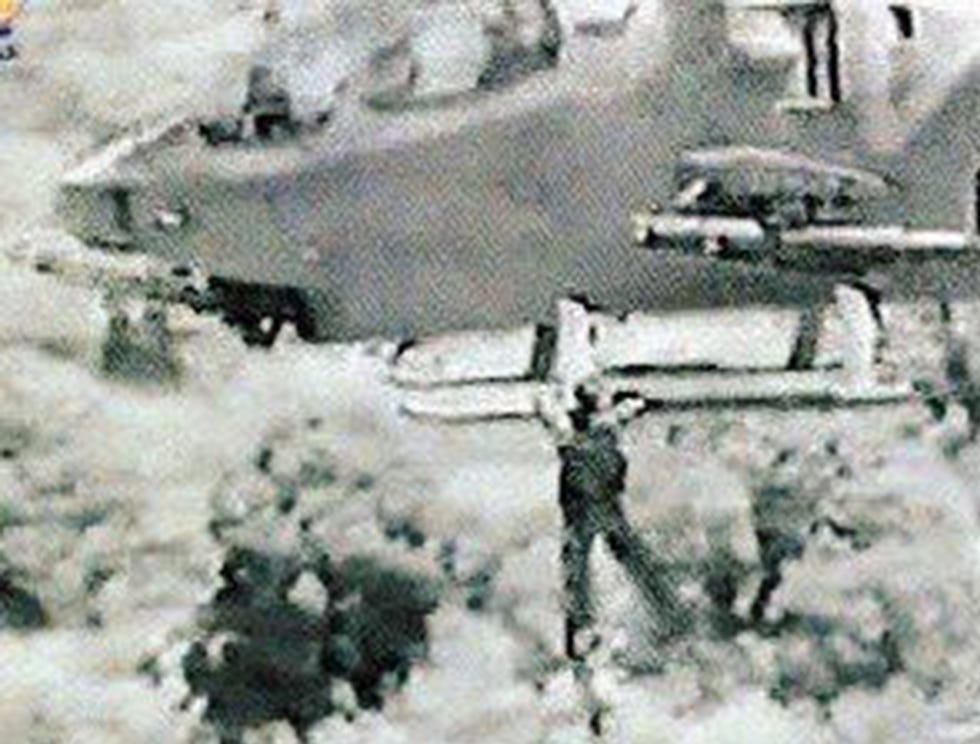
Ron Arad was never recovered. He was captured by the Shi'ite Amal Movement and kept in captivity for years. He is believed to have died while in captivity, though circumstances surrounding his death remain a mystery: in 2005, Israel’s intelligence community was able to obtain information considered to be “of the highest levels of certainty” that Arad had died in Lebanon, likely from an illness, between 1995 and 1997, which means he would have been alive in captivity for a decade. Other accounts claimed that he’d died in 1988, as a result of beatings.1
Though we were still living in Los Angeles when Arad was captured, and thus followed Israeli news less closely than we do now, I remained keenly aware of how long Arad had been in captivity, because our daughter, our eldest child, had been born on October 9 of that year, precisely a week before Arad was captured.
Arad had a very young baby girl, Yuval, who was about nine months old when he was captured.
Especially in those early years, every one of our daughter’s milestones brought to mind Arad and his daughter. At our daughter’s first birthday party, I still recall, I thought several times during the day, “Next week, he’ll have been gone for a year. I wonder if his daughter remembers him.”
And so it was, for many years, on her birthday, at other milestones. I remembered him. From afar, and the memories made no difference to anyone or did anyone any good, but I remembered.
But then we all began to forget.
Periodically, there were news items when Israel thought that perhaps intelligence had obtained a scrap of information. But for the most part, Ron Arad slowly faded from Israeli news, and from Israelis’ memories. I wonder how many Israeli high school students today have any idea who he was.
Lately, though, Tami Arad, his widow, has been speaking out about the hostage situation, urging the families not to let the memories of their loved ones fade. Because she knows well what happens when negotiations begin (as they did with Arad) but then get stalled, and then get forgotten.
You see his face popping up much more often:
“This narrow window of opportunity would well be the last,”
reads the headline above from N12.
“The missed opportunities and the lessons we should learn from our failure to return Ron Arad.”
An article on N12 from three weeks ago is noteworthy for many reasons, but here, we will briefly cite only two passages.
The first is an astonishing recollection by those who were involved in the negotiations back then, and their assessment of why we failed to get Arad back.
The similarities between than and now can chill your blood.
According to one version, Defense Minister Yitzhak Rabin was not willing, as a matter of principle, to pay money for an IDF officer. According to another version, Amal added a demand for the release of Palestinian terrorists with a lot of blood on their hands imprisoned in Israel. According to a third version, the organization added a demand for the withdrawal of the IDF from southern Lebanon.
“Rabin and Shamir should have taken this deal with both hands from the very beginning and replaced Ron Arad with whoever the Shiites demanded,” Yatom says, “These moves could have been made in a much more aggressive way, there was no sense of panic on the part of the Israeli leadership.” Among the versions, one thing is clear - at this stage Defense Minister Rabin ordered the negotiations on the return of the captured navigator to be suspended.
If that similarity is not sufficiently harrowing, consider this paragraph that comes just slightly later in what’s a rather lengthy article:
Yotam recalls: “There was another thing that affected Rabin to a certain extent and that was the outbreak of the [DG - first] intifada. Unfortunately, Rabin was in the US and returned to the first two weeks of the intifada and he learned that those who were at the head of the intifada were almost all freed in the Jibril deal, in which we returned 1,150 terrorists.”
That, of course, is precisely what happened with the Gilad Shalit deal, in which Israel traded 1,027 prisoners for Shalit, among them Yahya Sinwar, the head of Hamas in Gaza, and the mastermind of the October 7 massacre.
Later still in the article, Tami Arad and her daughter, Yuval (now 38 years old), have a message for the families:
Tami and Yuval Arad, Ron’s wife and daughter, told Friday Studio: “There is no doubt that mistakes were made in the negotiations for Ron’s return and it makes no sense for such mistakes to happen again. This is the time to draw lessons, put the desire for revenge aside and take targeted and quick actions that will save the lives of the abductees. We must not waste additional time, we must not cut off contact, we must give the professional negotiation teams a full mandate to do their work. The narrow window of opportunity that has opened now may be the last.
“The feeling of opportunities missed will accompany us forever. In good moments and in difficult moments, that feeling is present, as if it has a life of its own, emerging without warning and reminding us that Ron could have been brought back, he could have been saved. We would like to strengthen the courage of the families to voice their pain. They need the general public to raise their voices, too. On October 7, the perception of reality for all Israeli citizens should have changed.
“We learned, among other things, that not only soldiers can fall into captivity. Every family in Israel could have been in the nightmarish place where the families of the abductees are. The Israeli government must make the only humane, moral and ethical decision. There hostages must not be given up on, there is a way to save them from a fate that is crueler than anything that can be imagined.”
https://www.ynetnews.com/articles/0,7340,L-5027392,00.html




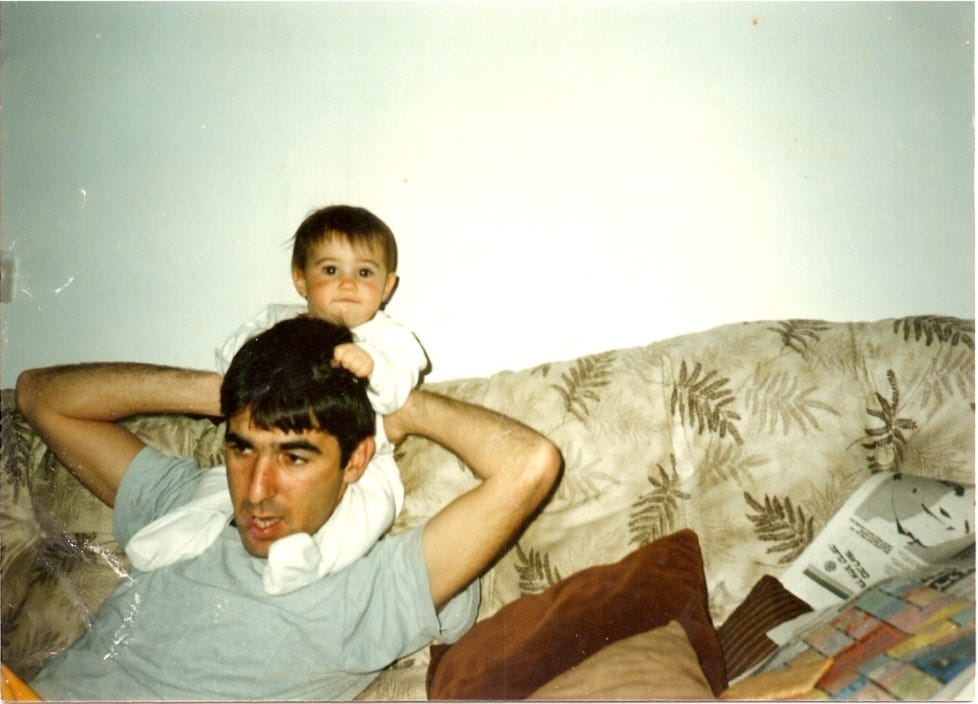
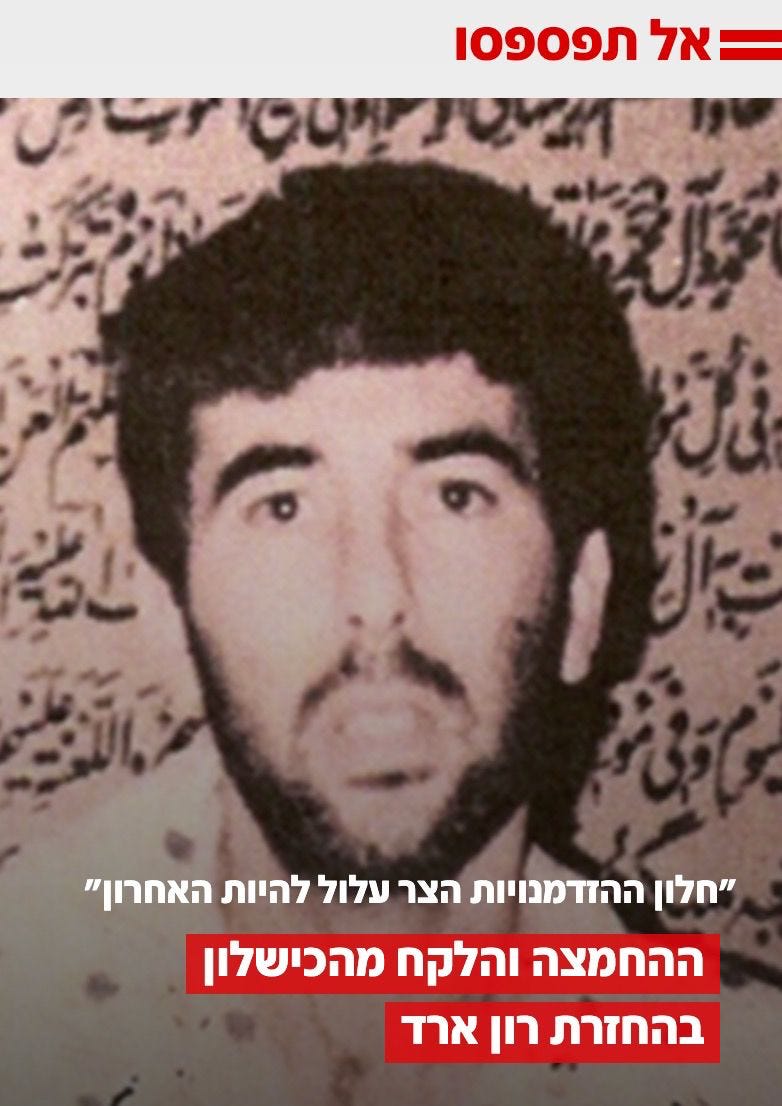
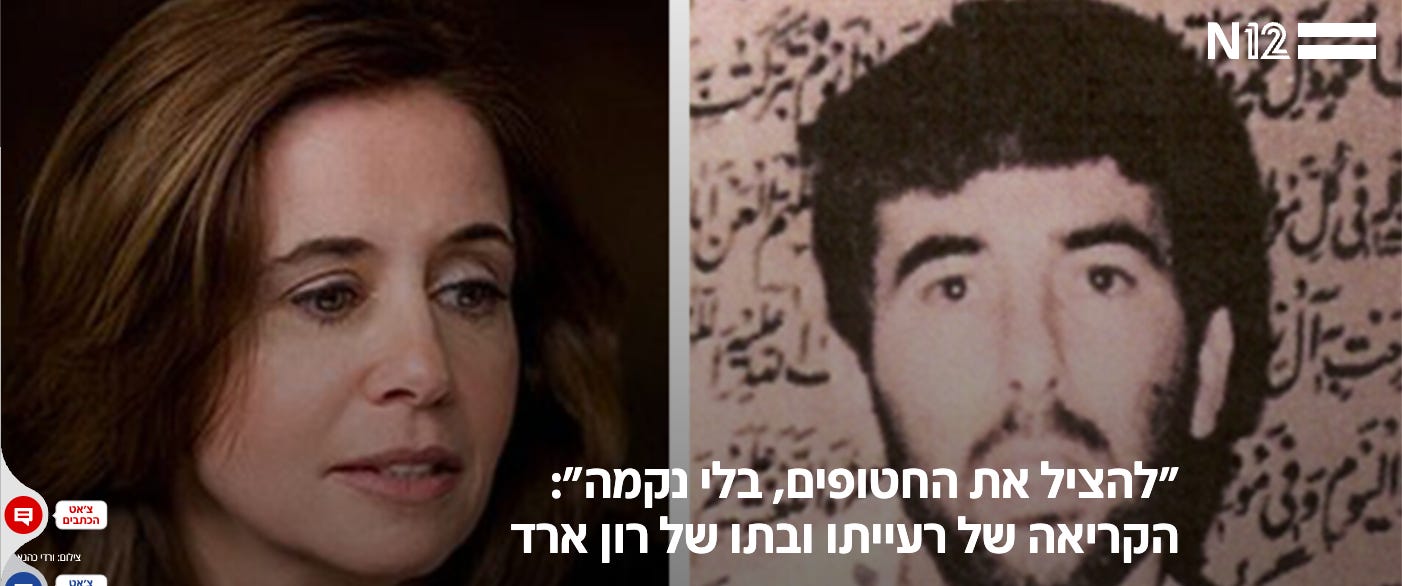
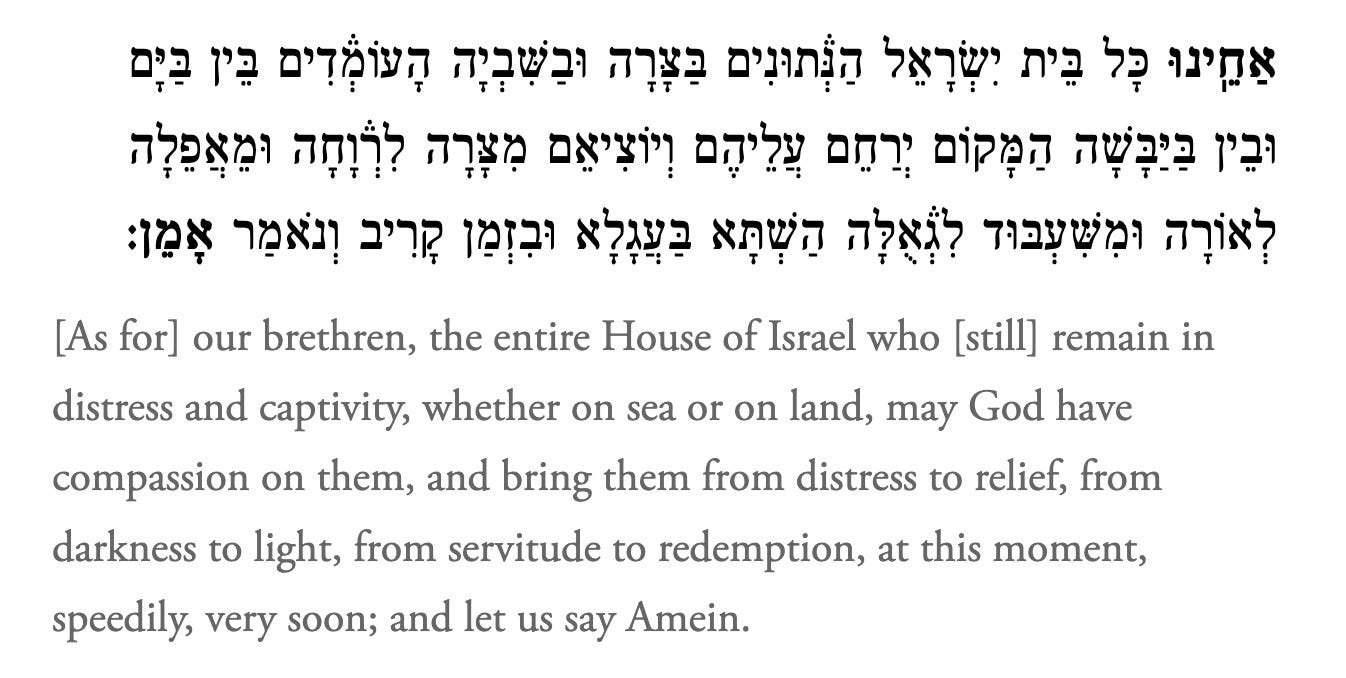













Ron Arad is back in the news, because his wife has a warning for the hostages' families